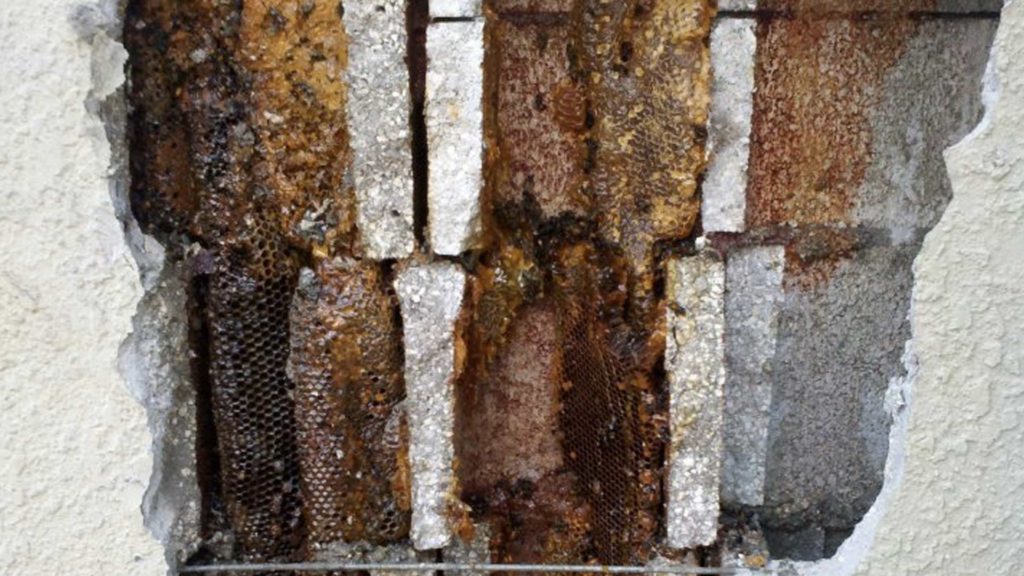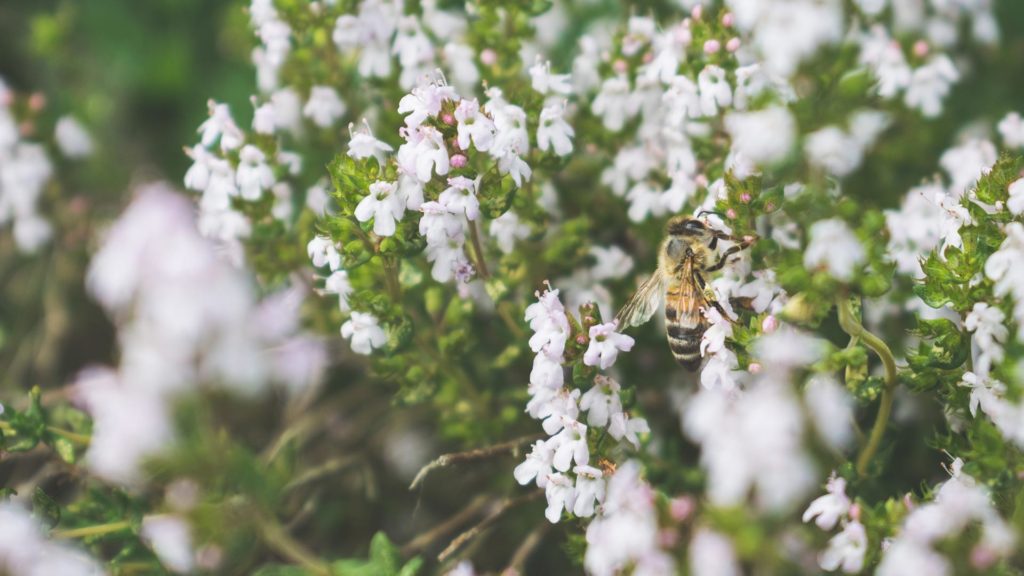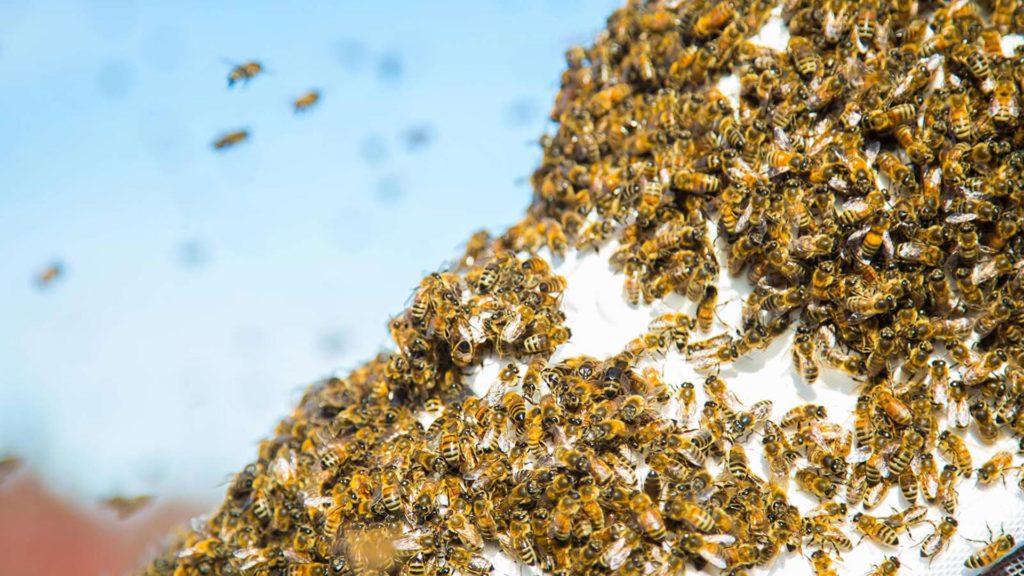Identifying and Handling a Potentially Dangerous Liability
Across the state of Florida, honey bees on commercial property are prevalent. While they are the most important pollinators we have, they can become a nuisance and safety hazard. Not a day goes by when honeybees aren’t seen moving from flower to flower collecting pollen and nectar. This is to create honey in order to feed the colony. The presence of bees is usually un-nerving to the general public. Some tenants and residents who may not be accustom to the flora and fauna of South Florida find this especially true. This in turn can create headaches for property management companies and their managers. When those issues arise, the managers management need to be able to provide solutions to the “problems”.
Identifying the complaint
The least important of these problem complaints are foraging bees. With the sub tropical climate of South Florida and expansive landscaping, bees will be consistently moving on and around flowering plants or trees. This is natural, just like people gravitating around grocery stores and restaurants. The bees are not defending a colony and will be passive in this activity. In most cases tenants or residents see these foraging activities as a threat to their well being and quality of life. This truly is not the case. Bees can travel up to 2 miles from their nesting place to search for a food source. The manager should communicate the natural occurrence to pacify the complaint. There is no solution because there is no problem.
The most important thing to know about bees is that they all have a colony location and will aggressively defend it if needed. This is a problem for clients and mangers that can escalate into lawsuits if not handled properly. The manager needs to respond to the complaint and identify the bee infestation in a timely manner. If there is a nesting colony, it will be self-evident and identified by an increase in activity in one specific area. Don’t confuse this with foraging.
Commonly on commercial and residential properties, bees will be seen entering a hole or crack on a building. These entry points are usually along the eve overhangs, around light fixtures, or wall piping. Other common areas include water meter boxes, irrigation valve boxes, hollowed tree cavities, boxed fences etc. Colonies nesting in or on the property create a liability and a serious public hazard especially to those unaware of the infestation. Now what? Risk management. Don’t be complacent or make a poor decision that can jeopardize your clients or your job!
The Solution
If you have honey bees on commercial property, pick up the phone! The first thing should be to consult the “vendors list”. Bee infestations have been very common over the last 7- 8 years . This means there is a good possibility someone may already be on the management company’s vendor list. Another avenue would be simply to ask other other managers if they have any experience with bee problems and who they could recommend. This gives the manager an inside track to a trusted source, instead of scouring the yellow pages or web and hoping the right choice shows up.
No matter who comes to your aid, check their credentials, licensing, insurances, and workers comp. Companies providing bee removal services are required to be licensed pest control companies carrying all required insurances and workers comp. Due to very little oversight and enforcement, many do not have these requirements or knowledge to do things properly without jeopardizing all involved. Experience is a must! There are more wrong ways than right when rectifying a bee problem. Be a part of the solution and not make the issue at hand any more difficult than needed.
South Florida is heavily populated with Africanized honeybees (AHB) colonies. Unfortunately, their homes usually end up in ours. If you or your clients encounter these issues, eliminate your risk. Avoid making a poor decision; seek knowledgeable professional help, not the maintenance person.
Ronnie Sharpton is an owner of Alpine Farms Bee Removal company, a CAI business member, which provides bee removal services throughout South Florida including Martin, St Lucie, and Indian River counties.
Get A Free Estimate
Have a bee problem at your home or business? Whether it's indoors our outdoors, we're here to help!
Service Areas
We provide professional bee removal services for the Southeast Florida area.
Indian River County, FL
St Lucie County, FL
Martin County, FL
Palm Beach County, FL
Broward County, FL




